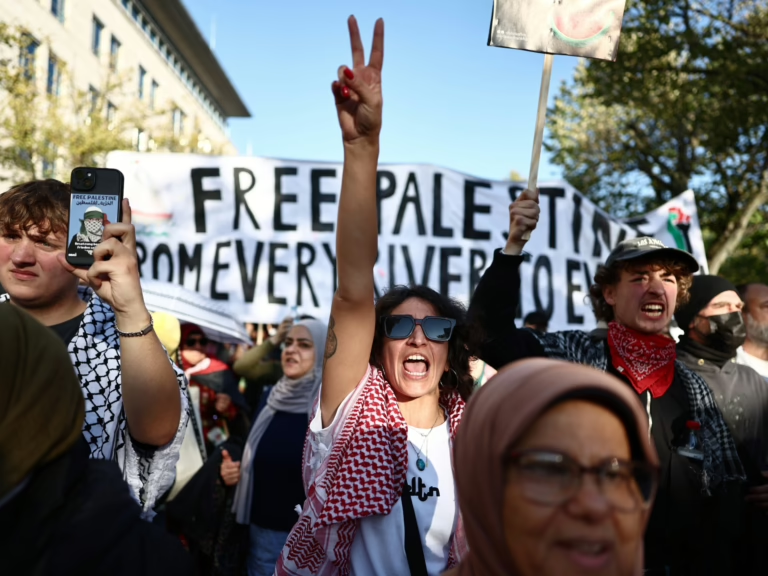For centuries, humanity has pondered the question, “What if…”? In the coming months, Al Jazeera will delve into some of today’s most pressing global issues, consulting top experts to explore these hypothetical scenarios.
U.S. President Donald Trump has set a Sunday deadline for Hamas, the Palestinian faction, to accept a proposal aimed at ending Israel’s military operations in Gaza. The plan would permit Israel to maintain a temporary presence in certain Gaza areas.
However, skeptics highlight Israel’s ongoing military actions in Lebanon despite last year’s ceasefire, as well as continued incursions into the occupied West Bank, casting doubt on whether this agreement can truly halt hostilities or bring lasting peace to Gaza.
Should negotiations collapse, many anticipate Israel will persist with its devastating military campaign, which has resulted in the deaths of over 66,000 Palestinians and widespread destruction.
This comes amid widespread international denunciation of Israel’s conduct. In mid-September, a United Nations commission aligned with human rights organizations worldwide in labeling Israel’s offensive as genocidal. Shortly thereafter, the European Union suggested revoking Israel’s trade privileges with the bloc. Additionally, a UN-supported report in August accused Israel of imposing a man-made famine on Gaza.
Several longstanding allies of Israel, including France, the United Kingdom, and Canada, formally recognized Palestine as a sovereign state in September, following earlier recognitions by Norway, Spain, and Ireland last year.
Prominent political figures have also voiced strong criticism. Spanish Prime Minister Pedro Sanchez recently urged Israel’s suspension from international sports organizations “until the atrocities cease.” In May, Slovenia’s President Natasa Pirc Musar explicitly described Israel’s actions as “genocide.”
This raises a critical question: What if these nations escalated their efforts? Could they collectively compel Israel to halt its attacks and withdraw from Gaza, even without backing from the United States?
To gain insight, we consulted four specialists: Michael Lynk, an international law professor at the University of Western Ontario; Michael Becker, an expert in international human rights law at Trinity College Dublin with experience at the International Court of Justice; Nick Cull, a historian specializing in cultural boycotts at the University of Southern California; and Daniele Bianchi, an economist focused on sanctions at Queen Mary University of London.
Potential Roles for the United Nations
Michael Lynk emphasizes that the United Nations remains the most promising avenue to halt Israel’s actions in Gaza, citing historical precedents. “Israel’s conduct violates the UN Charter, the 1948 Genocide Convention, and the 1998 Rome Statute, all of which obligate member states to act against atrocities or genocide,” he explains.
He draws parallels to the 1950 UN General Assembly’s Uniting for Peace Resolution, which authorized intervention in Korea after Security Council vetoes blocked action. “This mechanism could be revived to authorize a UN peacekeeping force in Gaza,” Lynk suggests. Such a force could facilitate humanitarian aid, infrastructure restoration, and interim governance negotiations.
Furthermore, Lynk notes that under Article 6 of the UN Charter, persistent violators of UN principles can be expelled, though this requires Security Council approval, including from the U.S. He recalls past efforts to expel apartheid South Africa, which were vetoed by Western powers, but highlights that the General Assembly effectively ostracized South Africa for two decades by refusing to recognize its credentials. “It may be time for a similar approach toward Israel,” he asserts.
Actions Individual Countries Could Take Independently
Michael Becker points out the legal complexities surrounding unilateral state action. “While humanitarian intervention and the responsibility to protect have gained attention since the 1990s, international law generally requires UN Security Council authorization or a valid self-defense claim for the lawful use of force,” he explains.
He elaborates that the 1948 Genocide Convention mandates prevention of genocide but does not provide a standalone legal basis for military intervention. Becker also discusses the concept of collective self-defense or “intervention by invitation,” which depends on Palestine’s recognition as a sovereign state capable of inviting foreign assistance.
“Historical examples include the Democratic Republic of Congo inviting Ugandan forces in the 1990s, and more recently, the US-led coalition’s operations against ISIS in Iraq, conducted with the Iraqi government’s consent,” he notes. However, the situation in Gaza is complicated by questions over legitimate representation, as Hamas governs Gaza but is not universally recognized as the official Palestinian authority.
Effectiveness of Sanctions and Trade Embargoes
Daniele Bianchi compares potential sanctions on Israel to those imposed on Russia. “Despite extensive sanctions, Russia has managed to endure with support from China. Similarly, without U.S. cooperation-Israel’s largest trading partner-sanctions or embargoes might inflict economic pain but are unlikely to halt Israel’s actions,” he argues.
Bianchi adds that Israel’s export economy is heavily reliant on technology products rather than easily boycotted commodities, making economic pressure more challenging. “Even after nearly two years of conflict, Israel’s economy remains resilient, defying predictions of collapse,” he observes.
The Power of Public Mobilization
Nick Cull highlights the impact of cultural and sporting boycotts in shaping public opinion and isolating nations internationally. “Such boycotts send a clear message that a country’s conduct is unacceptable, stripping away any pretense of normalcy,” he explains.
He recalls the cultural boycott against apartheid South Africa, first proposed by Trevor Huddleston in 1954 and later endorsed by the UN General Assembly in 1968. “Cultural pressure works gradually, eroding a nation’s reputation over years or decades,” Cull says.
“Nelson Mandela famously referred to apartheid South Africa as the ‘world’s skunk.’ The sustained cultural boycott, combined with comprehensive economic sanctions, eventually compelled South Africa’s leaders to negotiate an end to apartheid,” he concludes.

















